FORD HISTORY
Hello friends, I will give you information about Ford, a car brand that I love very much.
Ford is a well-established automotive company based in America and a globally recognized brand. Here is basic information about Ford:
Founding and History:
Ford Motor Company was founded in Detroit, Michigan, by Henry Ford on June 16, 1903. Known for its revolutionary production methods in the automobile industry, the production of the Ford Model T made the company a great success.
The history of Ford Motor Company is based on significant developments in the automotive industry and the revolutionary production methods that Henry Ford introduced to the industry. Here's the basic history of Ford:
1903 - Establishment: Ford Motor Company was founded in Detroit, Michigan, by Henry Ford on June 16, 1903. Henry Ford came together with a group of investors and founded the company.
Model A and Model T:
The Model A was first produced in 1903, but this model had limited success. Introduced in 1908, the Ford Model T was a model that revolutionized the automobile industry. It is known for being durable and affordable, appealing to a wide segment of the public.
Assembly Line Revolution (1913):
In 1913, Ford started mass production by commissioning the assembly line at its Highland Park plant. This was a revolutionary change in the automobile manufacturing process and sped up production.
8-Hour Working Day (1914):
Ford set industry standards in 1914 by reducing his employees' work day to 8 hours. This step stood out as a "worker-friendly" approach.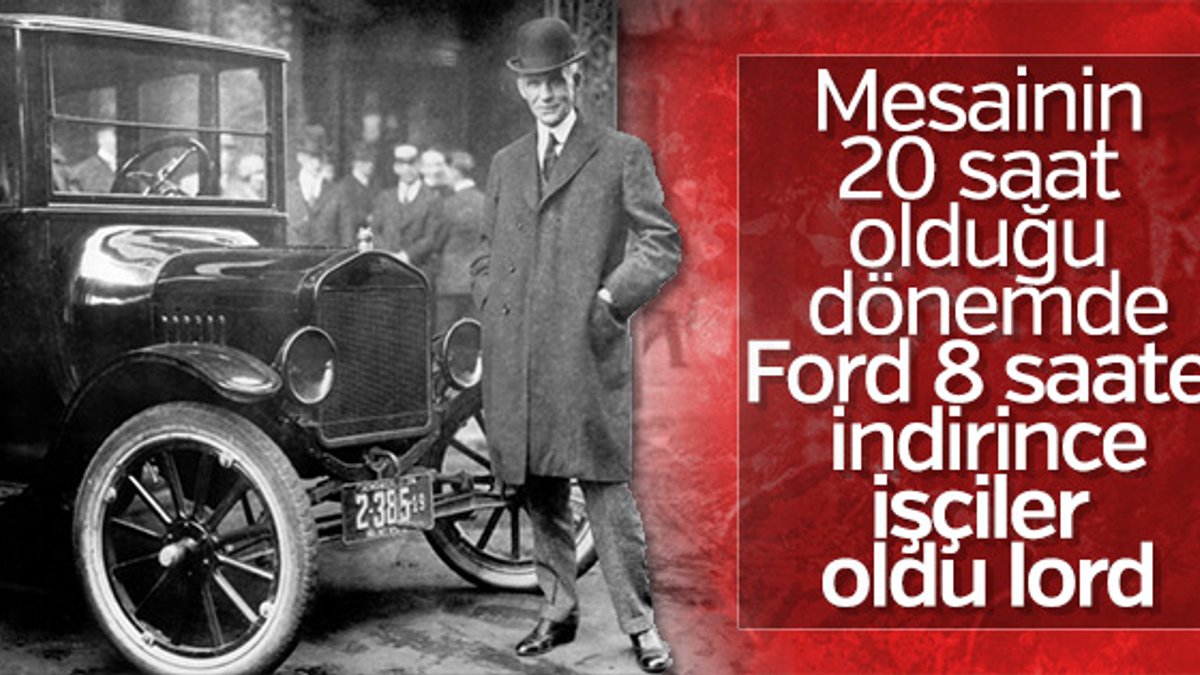
1920s - Expansion and Global Presence:
During the 1920s, Ford became a global presence, expanding into markets around the world. It established production facilities in many countries.
1930s - Model Y and Global Growth:
In the 1930s, Ford introduced new models such as the Model Y and continued global growth.
II. World War and After:
II. During World War II, Ford supported the war effort and produced military vehicles. After the war, it returned to civilian vehicle production.
1960s and Later - Mustang and the Modern Era: Launched in 1964, the Ford Mustang was a huge success and was influential in the sports car segment. Ford later competed in the market with different models and today has a wide range of vehicles.
Ford Motor Company is a company known for its long history and pioneering role in the automotive industry. Henry Ford's production methods and the availability of the Model T to the public made the company one of the pioneers of the automotive industry.
Car Models: Ford has produced many iconic car models throughout history. These include models such as Ford Mustang, Ford F-Series (for example, Ford F-150), Ford Focus and Ford Explorer.
Ford is an automotive company that offers a wide range of cars. Models vary across different segments and needs. However, car models may change and be updated over time. Therefore, it is recommended that you contact Ford's official website or authorized dealers for the most up-to-date information. Here are some of Ford's car models in general:
Ford Fiesta:
A compact class hatchback model. A fuel economy-oriented vehicle suitable for urban use.
Ford Focus:
A mid-range hatchback or sedan model. It offers dynamic driving characteristics and spacious interior space.
Ford Fusion (Mondeo):
A middle class sedan model. It attracts attention with its stylish design and spacious interior.
Ford Mustang:
Iconic sports car model. It is known for its powerful performance, characteristic design and high performance features.
Ford Escape (Kuga):
Compact SUV model. It offers a high driving position, spacious interior and SUV features.
Ford Explorer:
Middle class SUV model. It has high performance, large interior space and features suitable for family use.
Ford Edge:
Middle class SUV model. It has a sporty design, spacious interior and various technological features.
Ford Bronco:
Aventure and off-road focused SUV model. It is known for its powerful performance, durability and design suitable for outdoor activities.
Ford F-Series (F-150, F-250, F-350):
Pickup truck series. The F-150 is a popular model globally in the light truck segment. Models such as the F-250 and F-350 are also heavy-duty pickup trucks.
These models are just a few examples of Ford's wide range of products, and the company may introduce new models over time. It is important to consult official sources to get the most up-to-date information on new features, performance improvements and design changes.
Production Methods and Assembly Line: Ford is known for its revolutionary contributions to automobile manufacturing. In 1913, Henry Ford started mass production by applying the assembly line method, allowing automobiles to be produced faster and more economically.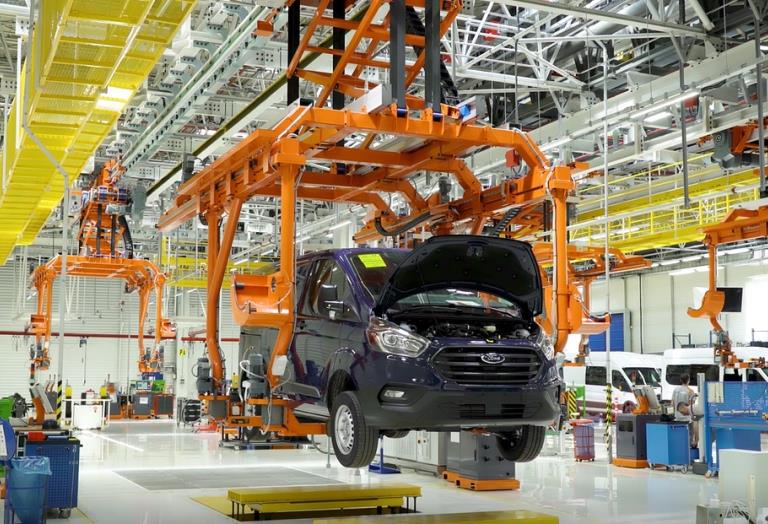
Ford developed many production methods and assembly lines that revolutionized mass production in the automobile industry. Here are some basic production methods and assembly line techniques that Ford has implemented throughout history:
Assembly Line and Mass Production:
Ford radically changed the automobile production process by introducing the assembly line at its Highland Park factory in 1913. The assembly line broke down the production of the car step by step, allowing each worker to perform a specific task. This allowed the car to be produced more quickly. The assembly line focused on workers moving around facing the car and completing a specific job.
Model T and Standard Parts:
The Ford Model T featured a design approach that increased the availability of standard parts and mass production. The use of standard parts made the production process more efficient and cost-effective.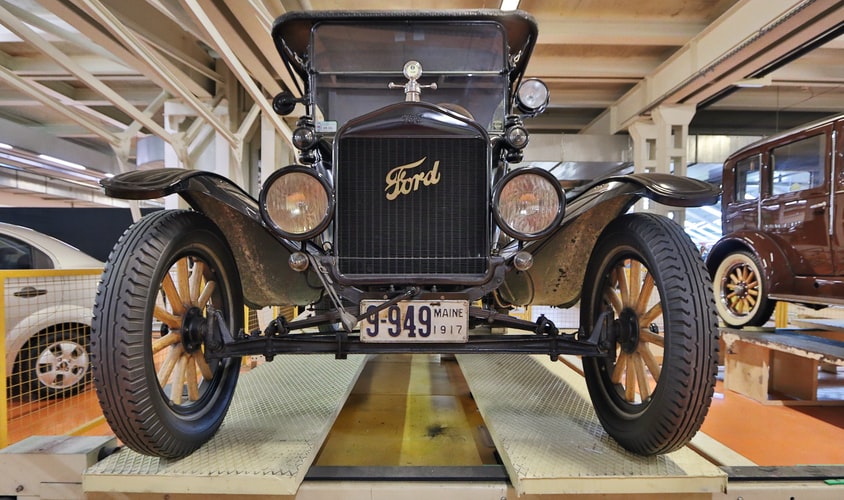
Mass Production and Public Availability:
Ford made automobile production accessible to millions of people thanks to mass production and efficient production methods. The affordability of the Model T opened the opportunity to own a car to the masses.
8-Hour Working Day:
Ford set industry standards by adopting the 8-hour workday in 1914. This step was aimed at providing employees with better working conditions and increasing worker satisfaction within the company.
Lean manufacturing:
Over time, Ford focused on various methods to increase efficiency, adopting an approach similar to Toyota's "Lean Manufacturing" principles. Lean production is based on principles such as waste reduction, continuous improvement and customer focus.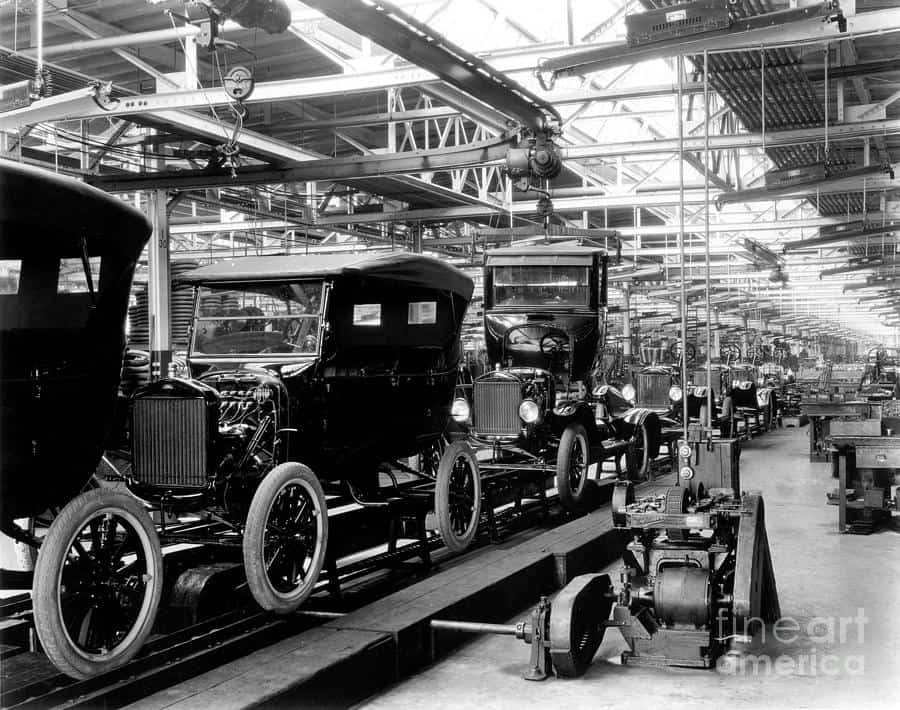
These production methods and assembly line techniques of Ford changed the general production standards in the automotive industry and made significant contributions to the industry.
Innovation and Technology:
Ford has pioneered several technological innovations in the automotive industry. For example, in 1914, in order to support the "worker-friendly" movement, it set industry standards by making a decision to reduce working hours to 8 hours.
Ford focuses on various technological innovations in order to maintain its competitive advantage in the automotive industry and offer more advanced and innovative products to customers. Here are some of Ford's key initiatives in innovation and technology:
Electric Vehicles and Hybrid Models:
Ford is making a major strategic shift towards electric vehicles. Fully electric vehicles such as the Mustang Mach-E and hybrid models such as the Fusion Hybrid reflect the company's efforts in this area.
Ford Co-Pilot360™ and Safety Technologies:
Ford has taken important steps in driver assistance systems and active safety technologies. Ford Co-Pilot360™ is a package that offers a range of safety features and is a prominent feature in automobiles.
Sync Information-Entertainment System:
Ford's SYNC infotainment system integrates the infotainment system within the vehicle. It increases the comfort of drivers and passengers with voice commands, touch screen and other user-friendly features.
FordPass Connect and Remote Control:
FordPass Connect is a mobile application that offers various services to users via the vehicle's internet connection. This app provides remote unlocking of the vehicle, tracking its location, and other services.
Road Assist Technologies:
Ford is working on various road assistant technologies to ensure that drivers travel safely and comfortably. Features such as lane tracking assistant, adaptive speed control and autonomous driving technologies can be evaluated in this context.
Energy Storage and Sustainability Efforts:
Ford is working on energy storage solutions. In particular, efforts towards solar energy, electric vehicle charging stations and energy storage projects reflect the company's efforts in the field of sustainability.
Innovation Centers and Partnerships:
Ford remains committed to technology through innovation centers and strategic partnerships around the world. In these centers, studies are carried out to develop future mobility and automotive technologies.
These efforts by Ford in the field of technology reflect the company's vision of maintaining its leadership in the automotive industry for the future and providing customers with more advanced vehicles.
Global Presence:
Ford has a large global presence around the world and has manufacturing facilities in many countries. It has a wide range of products in different markets and produces cars, trucks and commercial vehicles in different segments.
Ford has a large presence around the world and a global network of operations. In addition to manufacturing and selling automobiles, the company has a number of subsidiaries and facilities operating in different markets. Here's some basic information about Ford's global presence:
Production Facilities:
Ford has automobile production facilities in many countries around the world. There are production facilities in the United States, Canada, Mexico, Germany, Spain, China, England, South Africa and many other countries.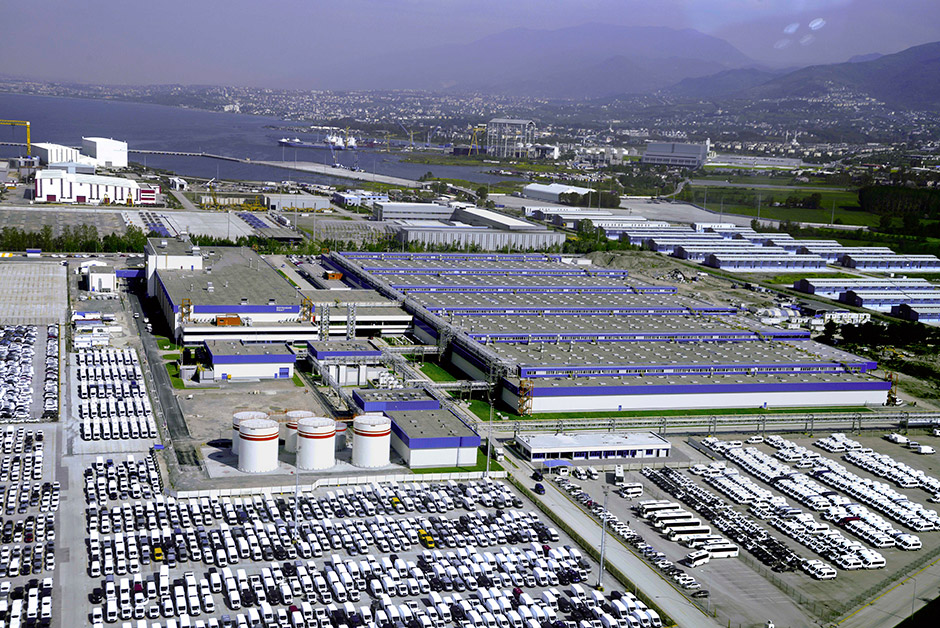
Sales & Marketing:
Ford has an extensive sales and marketing network for automobile sales worldwide. This happens through dealers, sales offices and other sales channels.
Global Models:
Ford's product range includes models suitable for different markets around the world. Vehicles are produced in various segments, from compact cars to SUVs, pickup trucks and commercial vehicles.
Strategic Partnerships and Affiliates:
Ford has established strategic partnerships with different companies around the world and, in some cases, has contributed to the production of other brands through these partnerships.
Ford Otosan:
In Turkey, Ford has a joint venture called Ford Otosan. This partnership manages Ford's operations in Turkey and is one of Ford's major production bases in Europe.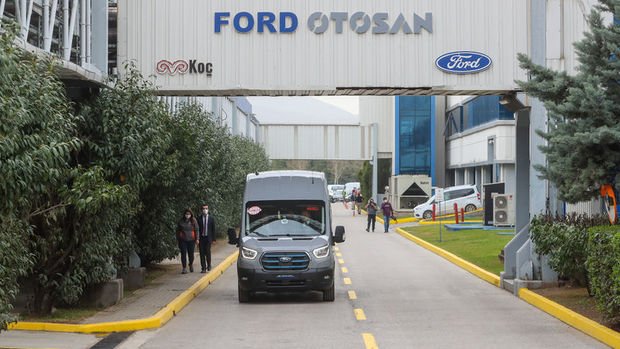
Global R&D and Innovation Centers:
Ford maintains several centers for research, development and innovation activities around the world. In these centers, studies are carried out on future automobile technologies and sustainable mobility.
Activities in International Markets:
Ford continues its activities in international markets by establishing sales and service networks in many countries around the world.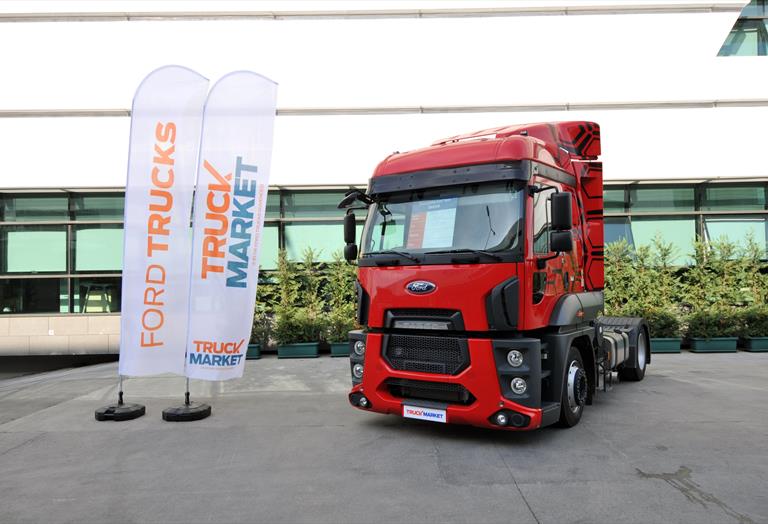
Ford's global presence reflects the company's effectiveness and competitiveness in the global automotive industry. The company continues its goal of becoming a global automotive leader by producing vehicles suitable for markets in different geographies and establishing strategic partnerships.
Ford is a major player with its long history and global presence in the automotive industry. While the company offers customers a wide range of products, it also focuses on technological advancements and sustainability efforts.
https://www.ford.com.tr/


























































